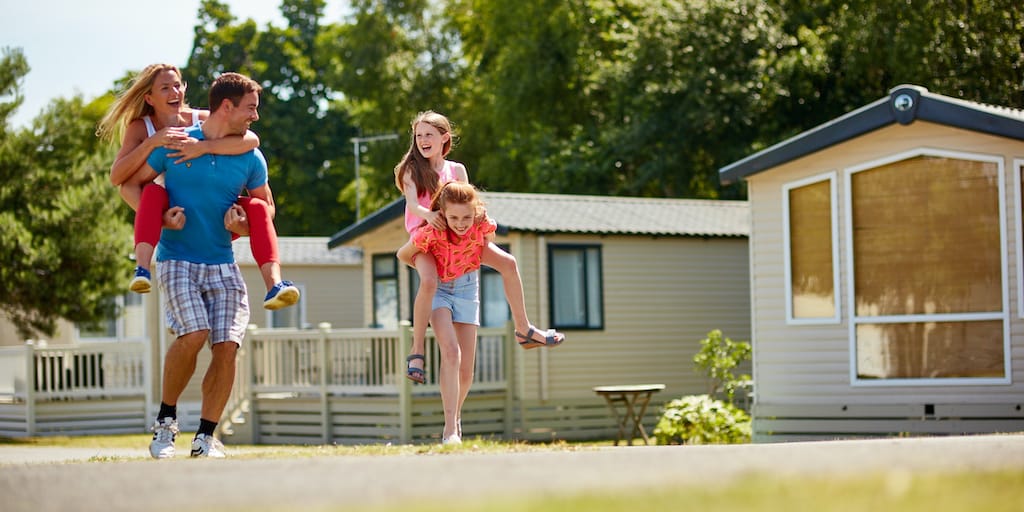Fido-friendly Lancs park takes the lead for bees

A Lancashire caravan park has sown the seeds of survival for endangered honey bees by swapping pooches for pollen in part of its grounds.
Earlier this year, Moss Wood Holiday Park in the village of Cockerham hived off a large section of its dog exercise field to create a colourful wilderness of wild flowers.
Specially chosen for their high pollen-bearing blooms, they are now providing the much-needed nectar which will help sustain honey bees over the winter.
Moss Wood’s bee buffet extends to over 3000 square feet, and park director Henry Wild says dog-owning guests have given their full support to the move.
Pet owners still have over three acres of exercise grounds – and the wild flowers are adding an extra flutter of pleasure to Fido’s regular romps.
That’s because the blooms have also created a buzz among butterflies, and a raft of both common and less familiar butterfly species now share the nectar with the bees.

Family-run Moss Wood, established by the Wild family over 40 years ago, provides around 200 pitches for holiday homes, touring caravans and motorhomes.
Its many initiatives to protect the natural environment led to its being presented once again this year with the prestigious David Bellamy Conservation Award at its top gold level.
Moss Wood’s latest bee-friendly move was made in response to a call by Professor Bellamy for parks to step-up their work to protect the beleaguered insects.
Late-flowering plants, says Henry, allow honey bees to forage during the autumn when they need to build energy reserves to see them through the coming harsher months:
“Wild flowers are far less abundant than they once were, and the use of pesticides is blamed by some experts for reducing the food resources for pollinators like bees,” he said.
“Our holidaymakers have been extremely impressed at the speed with which our flower bank has grown since it was seeded at the start of the year.
“Some have also been asking how they can create a similar bee buffet in their own gardens, and we have been giving advice as to the best varieties to sow.
“We are also inviting guests to help themselves to the seeds which many of our varieties produce at the end of summer, and to sow them next spring,” added Henry.
Moss Wood also helps threatened solitary bees by providing them with “glamping pods” which take the form of hardwood logs bored with hundreds of tiny tunnels.
Positioned in hideaway locations throughout the grounds, says Henry, they provide perfect homes in which solitary bees can make cells of nests for their larvae.
There is more information about Moss Wood Caravan Park at www.mosswood.co.uk

